The popularity of Manuka Honey has ballooned worldwide as word about its health and beauty benefits spread further and further.
What is manuka honey? Curious to know where this honey comes from?
It is from New Zealand. This honey is specifically produced by bees that pollinate the flowers of the Manuka bush (Leptospermum Scoparium).
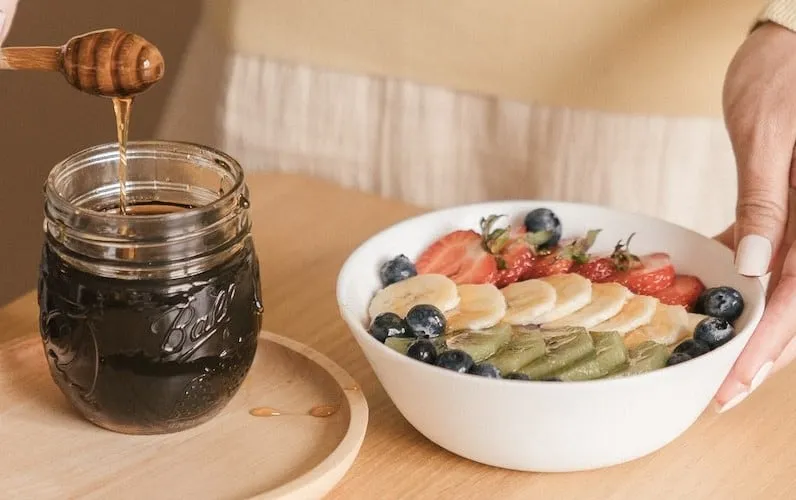
The Manuka Bush
The Manuka Bush is a native plant thriving in southern Australia and New Zealand.
New Zealand is home to cultivating this bush specifically for honey. The bees gather nectar from the flowers of the bushes. It is then processed for its medicinal benefits in the pharmaceutical industry.
Hence, some beekeepers cultivate this tree specifically to provide Manuka nectars to be turned into honey.
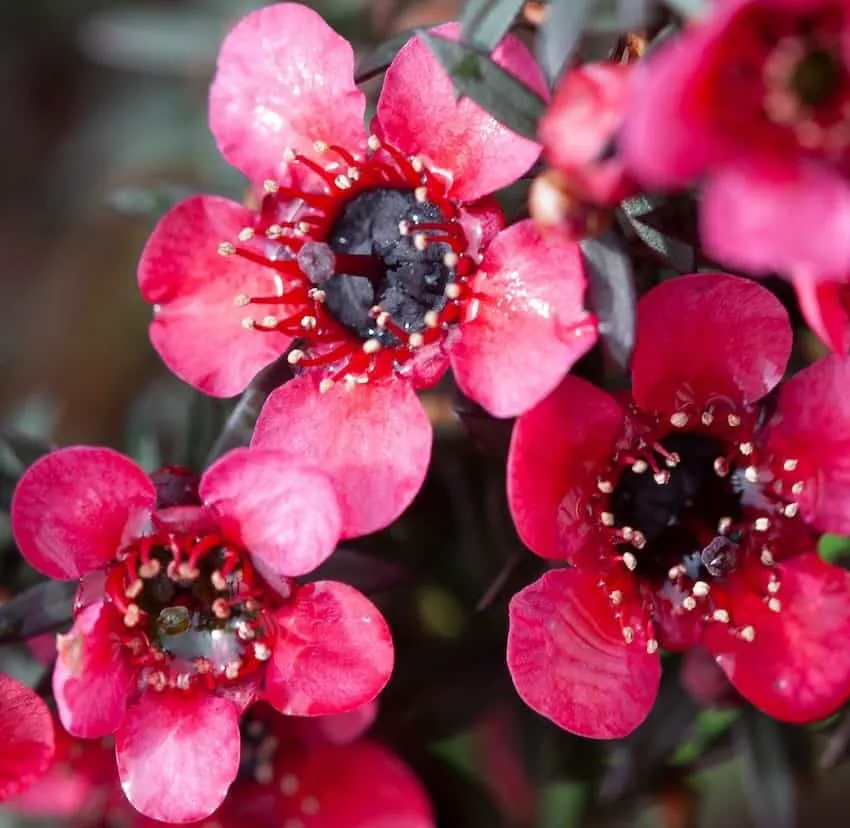
What is so Special about Manuka Honey?
Most honey acts as an antibiotic because of the presence of hydrogen peroxide in them. This includes manuka honey.
But this variety has other ingredients that have more antiviral and antibacterial properties. Manuka honey is known for its highly strong antibacterial and medicinal properties.
Glycerone or Dihydroxyacetone, a simple saccharide, is found in the nectar of manuka flowers in high content. Converting this compound produces methylglyoxal (MGO).
MGO is a compound found in high levels in Manuka honey, which is highly potent in fighting a wide range of harmful bacteria. Hence, Manuka Honey has been acclaimed as an ideal alternative to commercial antibiotics.
While other honey varieties have MGO, it is higher in manuka because of the high concentration of glycerine.
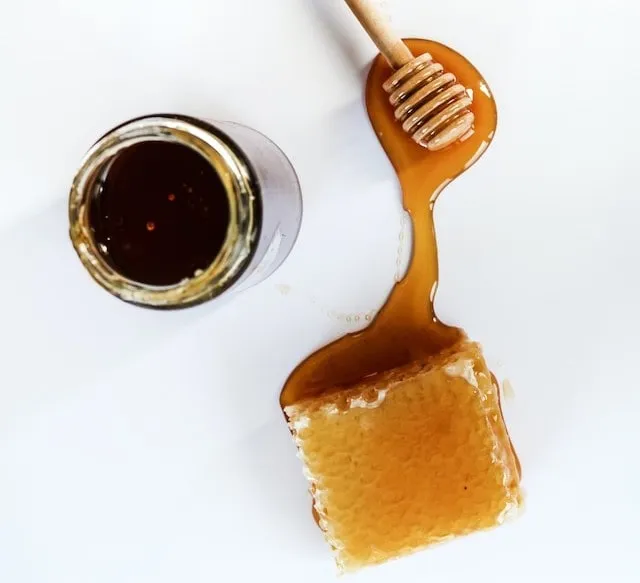
What Do MGO and UMF mean in Manuka Honey?
Honey producers rate the potency of manuka honey based on the presence of MGO and its UMF rating.
Methylglyoxal (MGO)
One of the key features of Manuka honey is its high antibacterial activity due to the presence of methylglyoxal or MGO.
The MGO rating system measures the amount of Methylglyoxal in the honey. The higher the MGO number, the higher the antibacterial quality and health benefits.
MGO is responsible for this honey’s antibacterial properties. It has the ability to target harmful bacteria but leaves beneficial bacteria untouched.
Unique Manuka Factor (UMF)
UMF is a grading method measuring the quality of Manuka honey. A globally accepted grading system helps identify manuka products as genuine. The UMF rating is the measurement of the potency of the medicinal properties of this honey. When the rating is high, the more potent its antibacterial and antimicrobial properties are.
UMF grading starts at 5 and goes up to 25. A UMF rating of 10 or above is considered high and of medical grade. It would, thus, be effective in treating a wide range of ailments.
The Unique Manuka Factor Honey Association (UMFHA) in New Zealand manages this rating to keep track of the authenticity of manuka honey in the market. The UMF stamp can only be used after quality standards laid out by the UMFHA are met.
If you are purchasing this kind of honey for its fast-healing properties, then choose one with a higher rating.
It is worth noting that honey with MGO does not necessarily mean it also has a high UMF rating. It is possible to have honey that has a high MGO rating but a lower UMF rating. This would indicate that the honey’s potency may not be too high as it had been heated or processed.
To assess the quality of Manuka Honey, look for its MGO and UMF ratings. By choosing one with high MGO and UMF ratings, you can be assured of its quality and potency as an effective treatment for various health conditions.
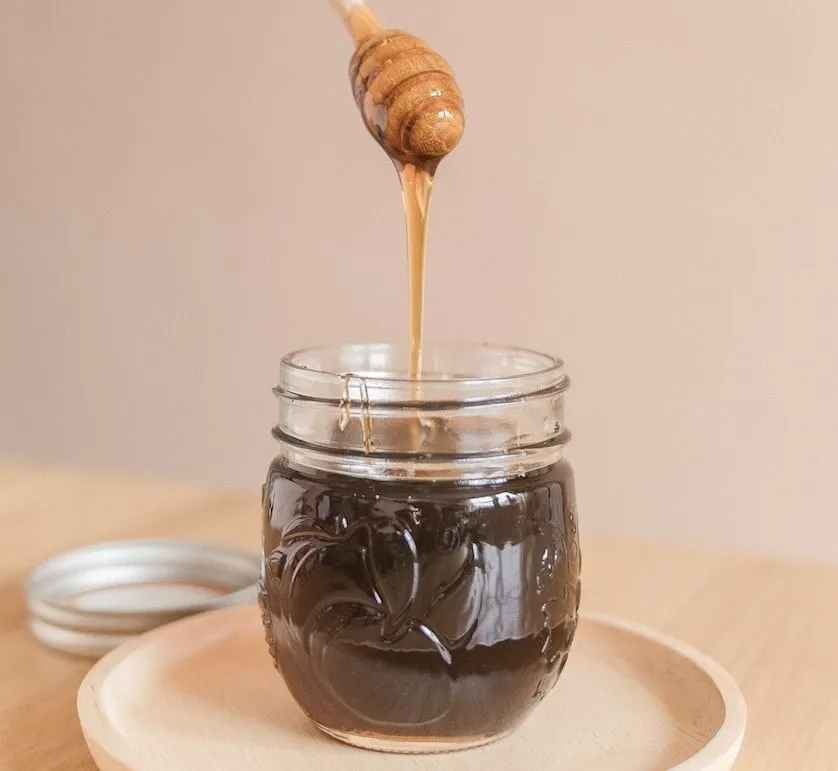
What are the Benefits of Manuka Honey?
Although regular honey is healthy in itself, the anti-bacterial properties of Manuka Honey bring it to another level from other types of honey. This has been the perception and claims of most users who have tried and tested its benefits.
Here are just a few Manuka Honey benefits that you may experience.
1. Anti-Bacterial Properties
Manuka Honey is effective in fighting harmful bacteria due to its effective antibacterial properties. This bacteria-fighting property is bolstered by the honey’s MGO content.
Manuka Honey has also been used to fight oral bacteria. Some people dilute this honey in water to be used as a mouthwash or oral gargle.
Regular use of Manuka honey as a mouthwash has resulted in better oral and dental health. It has helped prevent gum diseases, tooth decay, and other periodontal diseases.
2. Anti-inflammatory Qualities
Over the years, honey has helped treat some medical conditions due to its anti-inflammatory quality.
But with manuka, this quality is more potent.
MGO in Manuka Honey helps fight harmful bacteria while leaving good bacteria untouched. Due to this honey’s ability, manuka honey is great for wound healing, as it fights off bacteria in the wound to stop any infection and leaves good bacteria alone to promote healing and cell regeneration.
Manuka honey’s benefits include treating cuts, wound infections, and burns. Some even used them to treat wounds in pets.
There are also claims that this honey is effective in the treatment of eczema, acne, and other inflammatory diseases. While these claims are unsubstantiated by research and medical studies, the testimonies of those who have tried using them seem to be enough for those wanting and looking for solutions to their health problems.
Manuka Honey For Eczema And Acne
Studies have shown that Manuka honey can help treat lesions and scars. Thanks to its anti-inflammatory properties, Manuka honey may soothe the painful and itchy lesions caused by eczema and acne.
Here’s how Manuka honey may help with eczema and acne:
- Test a small area first to check you have no allergic reaction.
- Keep the jar completely sanitary by sterilizing a spoon or spatula. Never put your finger into your jar of Manuka honey.
- Apply each evening before you go to sleep.
- Using clean hands, use your fingertips to apply the honey to the area of eczema or acne.
- Use a light gauze dressing to cover the area before sleeping.
- In the morning, remove the gauze and use warm water to clean the face.
- Repeat each evening.
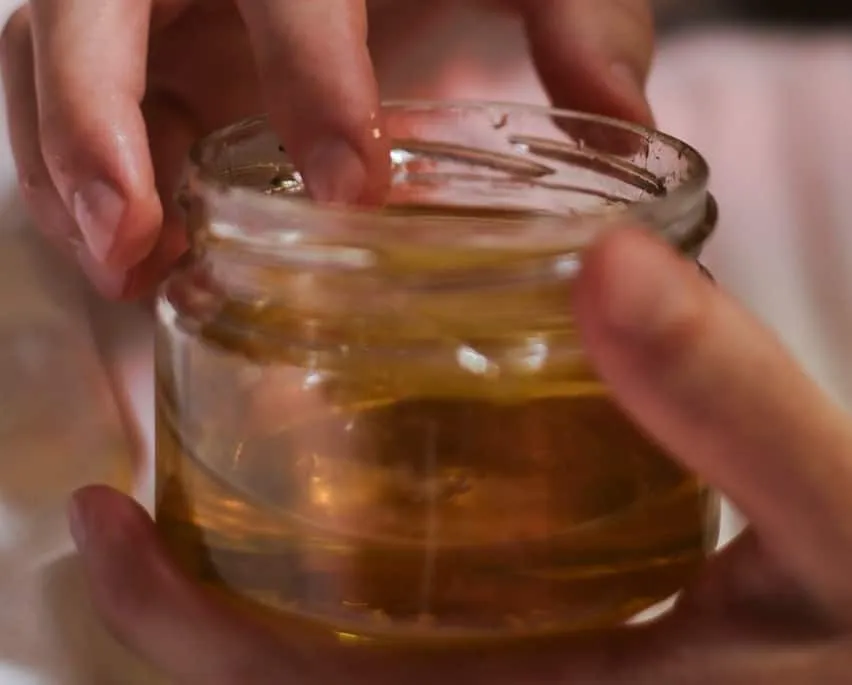
3. Wound Healing Property
The health benefits of Manuka honey caught the attention of doctors and healers centuries ago. Its antibacterial ability and soothing nature hasten the wound-healing process and reduce inflammation.
To use Manuka honey at home for treating small cuts and infections, make sure that the jar is sterile. Using an existing open jar from the pantry could lead to germ-contaminated content that can get into the wounds and cause an infection.
- Always clean your hands thoroughly before and after dressing a wound.
- Ensure dressings are in date and hygienically packaged.
- Use a sterile spatula to apply honey to the wound in a thin, even layer.
- Replace the dressing regularly.
- Seek medical advice if you notice signs of infection or if the patient experiences dizziness, breathing problems, or feelings of nausea.
3. Antioxidant Properties
Some people use it to improve health conditions due to its antioxidant activities. These properties help to combat oxidative stress and reduce inflammation in the body, which are major factors contributing to the development of several chronic diseases.
If you’re looking for a natural way to boost your immune system, manuka honey might be just what you need.
Popularly used to boost immune systems naturally, it treats mild viral infections like colds and flu.
When planning to treat colds, sore throats, and flu with Manuka honey, always consult with your doctor first. In most cases, using this honey to ease symptoms is entirely safe and beneficial.
Use a teaspoon of this liquid gold for sore throat and cough. Alternatively, mix it with ginger and hot water for a soothing, sweet drink for an itchy and raspy throat.
To use Manuka as an immune booster, take up to a tablespoon worth each day. As delicious alternatives, spread Manuka honey on yogurt, fruit, or toast. You can, of course, just eat it off the spoon.
4. Promotes Better Digestive Health
Manuka honey can also be great for digestive health. It has been claimed to be used for a long time to treat problems in the digestive system.
It is said to help soothe digestive issues like acid reflux and gastritis.
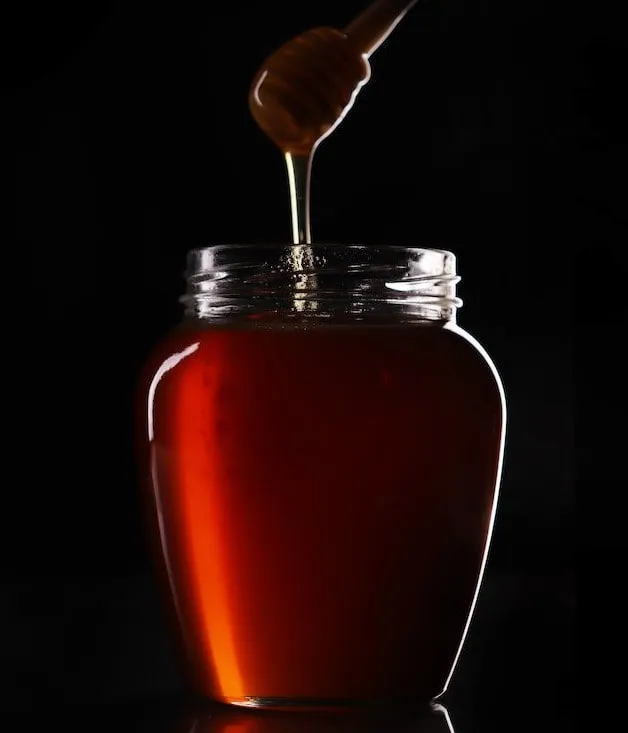
5. Regulates Blood Sugar Level
This kind of honey has also been presented for use in lowering body cholesterol.
Manuka honey has a lower glycemic index compared to refined sugar, meaning it is metabolized at a slower rate, which can help with blood sugar regulation. In addition, Manuka honey has been found to contain a high concentration of amino acids, which can help to lower blood sugar levels.
Others choose this as a sweetener for those with diabetes, as a remedy for sore throat, coughs and colds, and many other medical conditions.
6. Help Reduce Seasonal Allergies
Manuka honey has also been found to be a viable solution in treating seasonal allergies.
Upon contact with any allergen, our body reacts by releasing histamines. When this happens, we suffer from skin irritation, inflammation, and other allergy symptoms.
But consuming honey could help boost the immune system, inhibiting it from reacting to allergens. Both the antibacterial and anti-inflammatory properties of this honey help in preventing the release of histamines in the body.
A study supports the belief that honey is an effective anti-allergic solution.
7. Supports Skin and Hair Health
Different types of honey are versatile ingredients for various recipes. Honey is used for everything from baking to bathing.
So, it comes as no surprise that Manuka honey is good for skin and hair care too!
Manuka Honey As A Face Mask Or Face Wash
Fans of this honey swear by its glow-inducing qualities for facial care. It can also act as a moisturizer by helping your skin to retain moisture. Use this type of honey daily to wash your face. To do this, simply follow these steps:
- Rinse your face with warm water.
- Smooth Manuka Honey onto your face (don’t expect a lather).
- Massage your face for 30 - 60 seconds.
- Rinse off with warm water.
Or use it as a weekly face mask by following the first three steps above and leaving it on your face for 15 - 20 minutes before rinsing off.
Manuka Honey For Hair

As well as skincare, Manuka honey is excellent for keeping your hair luscious and healthy-looking. Its emollient properties can help your hair retain moisture, too. Handy for anyone who has dry, damaged, or frizzy hair.
Here’s how to use Manuka honey on your hair:
- Use it by itself or mix it with coconut oil.
- Smooth the honey (or honey mixture) from root to tip until all your hair is covered.
- Leave on the honey hair mask for 15 to 20 minutes.
- Wash off with your regular shampoo.
Regular Manuka honey hair masks will leave your hair noticeably softer and easier to manage.
Any certified Manuka honey will have beauty-boosting benefits for use as part of your daily skincare or regular haircare routine.
Always look for a jar with the UMF rating.
All honey is a little different. For use on hair and skin, you might prefer a thinner type that is easier to apply. Thicker honey will work, too. Warm it gently before use to make it easier to smother.
However, be very careful not to overheat the honey as this could damage your skin or hair, besides damaging the medicinal properties of your honey as well.
Final Thoughts On These Manuka Honey Benefits
These are just a few of the benefits that we can derive from Manuka Honey. However, self-medication with Manuka Honey should not be undertaken.
It is not a substitute for prescribed medications by health professionals. It is best to consult with your doctor before using manuka honey to treat any disease or ailment.
Seek medical advice from a healthcare professional on which Manuka honey they would recommend.

Leave a Comment
Your comment will be reviewed before appearing on the site.